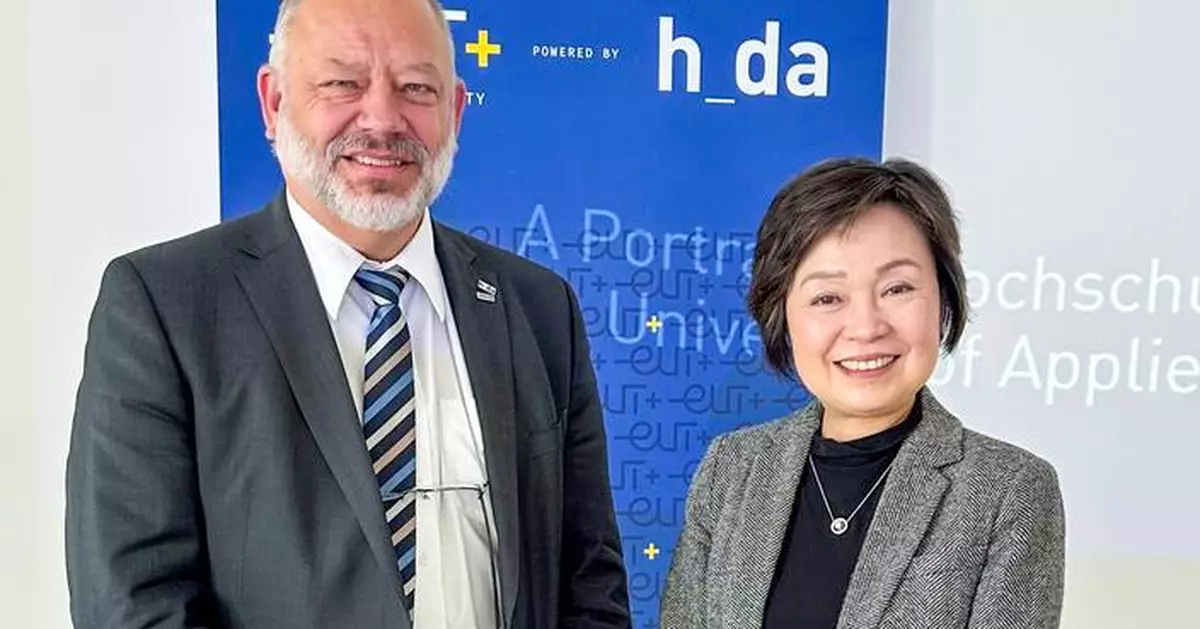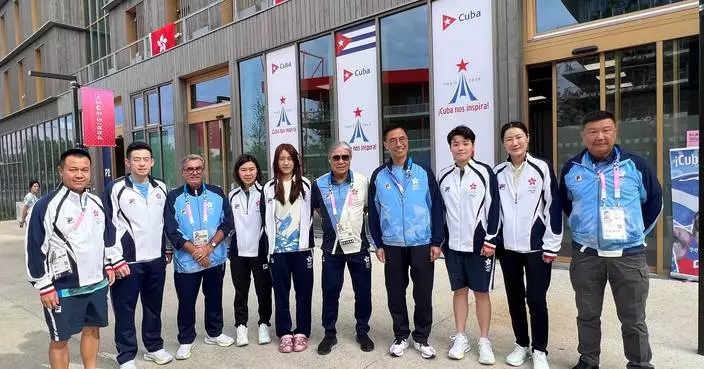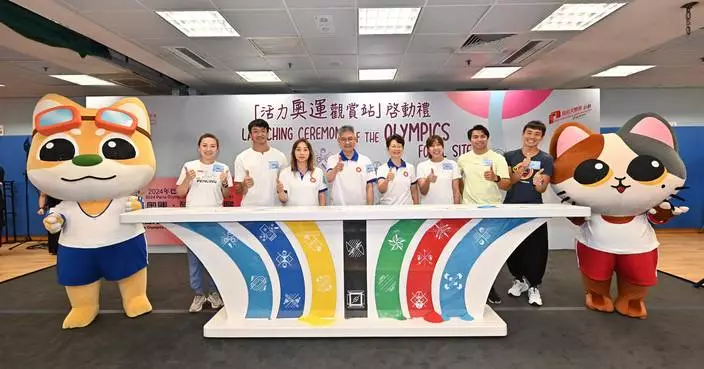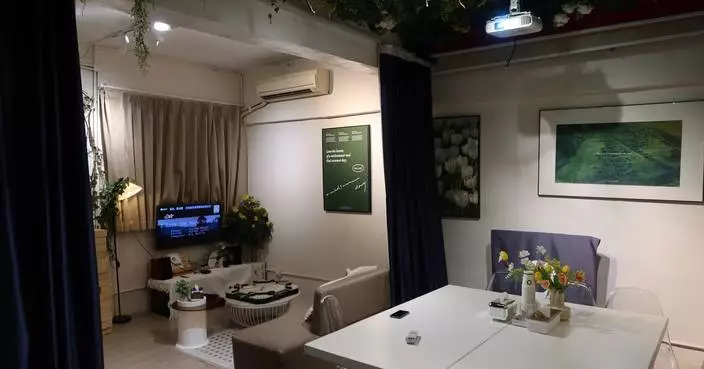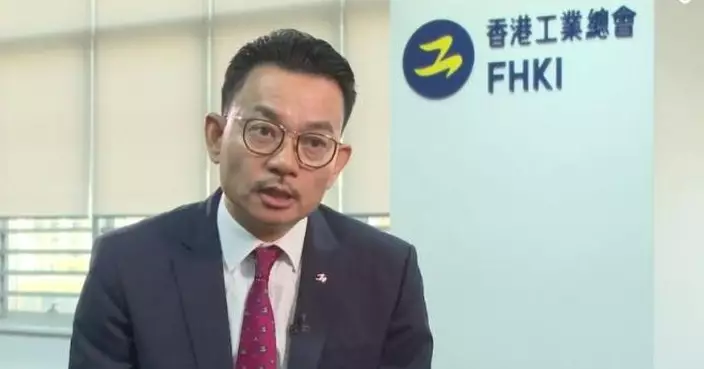Exploring innovations in vocational education and training in germany: a study visit by sed
The Secretary for Education, Dr Choi Yuk-lin, visited Frankfurt, Germany, on April 21 and 22 (Frankfurt time) to learn about the local developments in vocational and professional education and training (VPET).
On April 22 (Frankfurt time), Dr Choi visited the Darmstadt University of Applied Sciences, one of the largest universities of applied sciences (UAS) in Germany, and exchanged views with its President, Professor Dr Arnd Steinmetz, on VPET developments. She also learned about how the University ensures that its programmes keep pace with the times to meet the manpower needs of industries and gain recognition from enterprises.
She said that the Hong Kong Special Administrative Region (HKSAR) Government has been promoting VPET through the strategy of fostering industry-institution collaboration and diversified development under a multipronged approach. Related measures include proactively pressing ahead with the establishment of UAS. The HKSAR Government announced last month that the Hong Kong Metropolitan University has become the first UAS in Hong Kong. It has also granted a start-up fund of $100 million to support UAS and prospective post-secondary institutions to form an alliance of UAS for joint promotion, including networking and collaboration with leading UAS overseas.
On the afternoon of the same day, Dr Choi met the Managing Director, Training and Further Education, Vocational Training Committee of the Frankfurt am Main Chamber of Commerce and Industry, Dr Brigitte Scheuerle, to know about how the chamber, as one of the largest chambers of commerce and industry in Germany, promotes VPET and relevant education work.
On April 21 (Frankfurt time), Dr Choi met Hong Kong youngsters working in Germany and learned about their life there. She also shared with them the latest developments in Hong Kong.
Dr Choi will return to Hong Kong on April 23 (Frankfurt time).

SED visits Germany to learn about local developments in vocational and professional education and training Source: HKSAR Government Press Releases
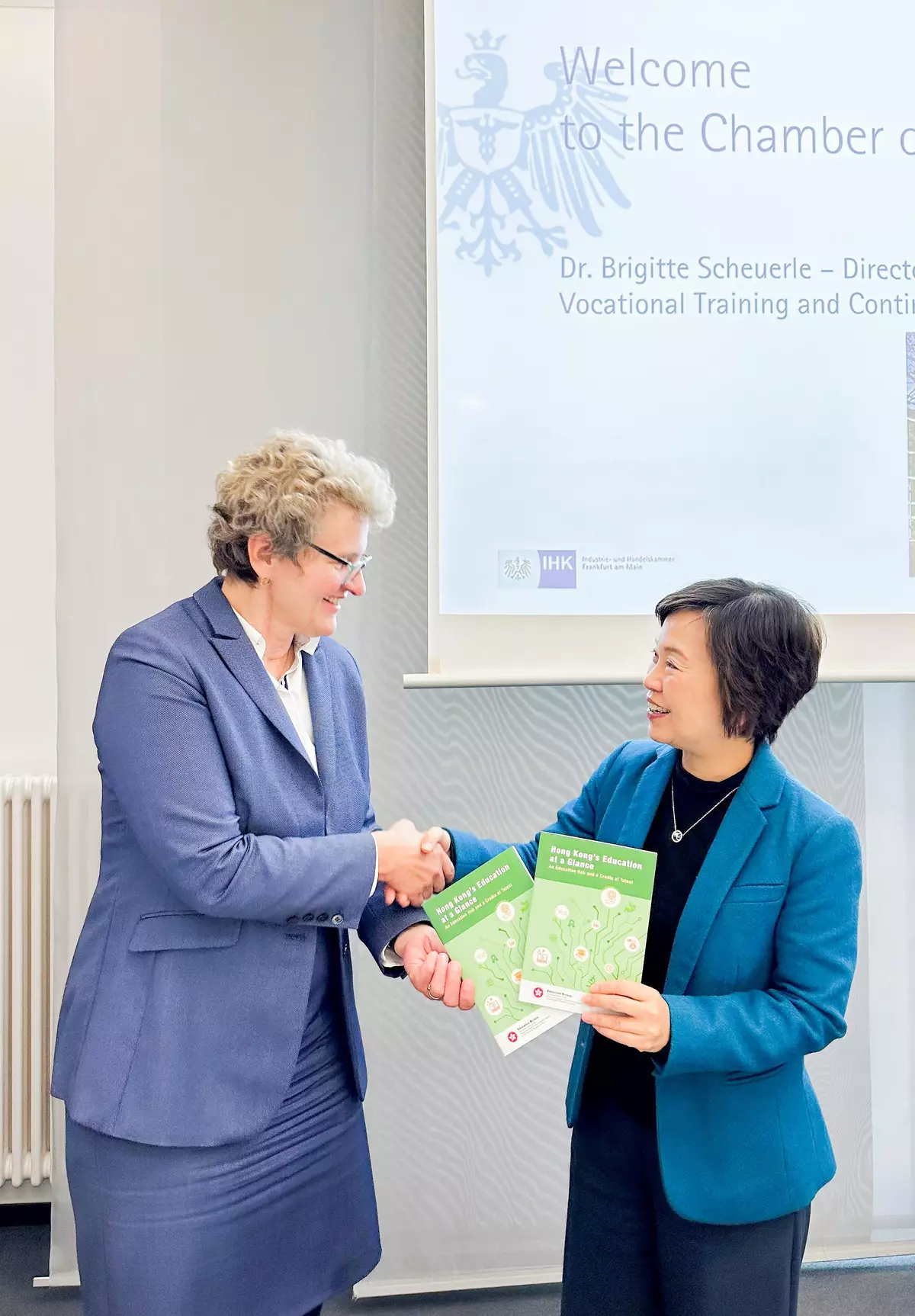
SED visits Germany to learn about local developments in vocational and professional education and training Source: HKSAR Government Press Releases

SED visits Germany to learn about local developments in vocational and professional education and training Source: HKSAR Government Press Releases
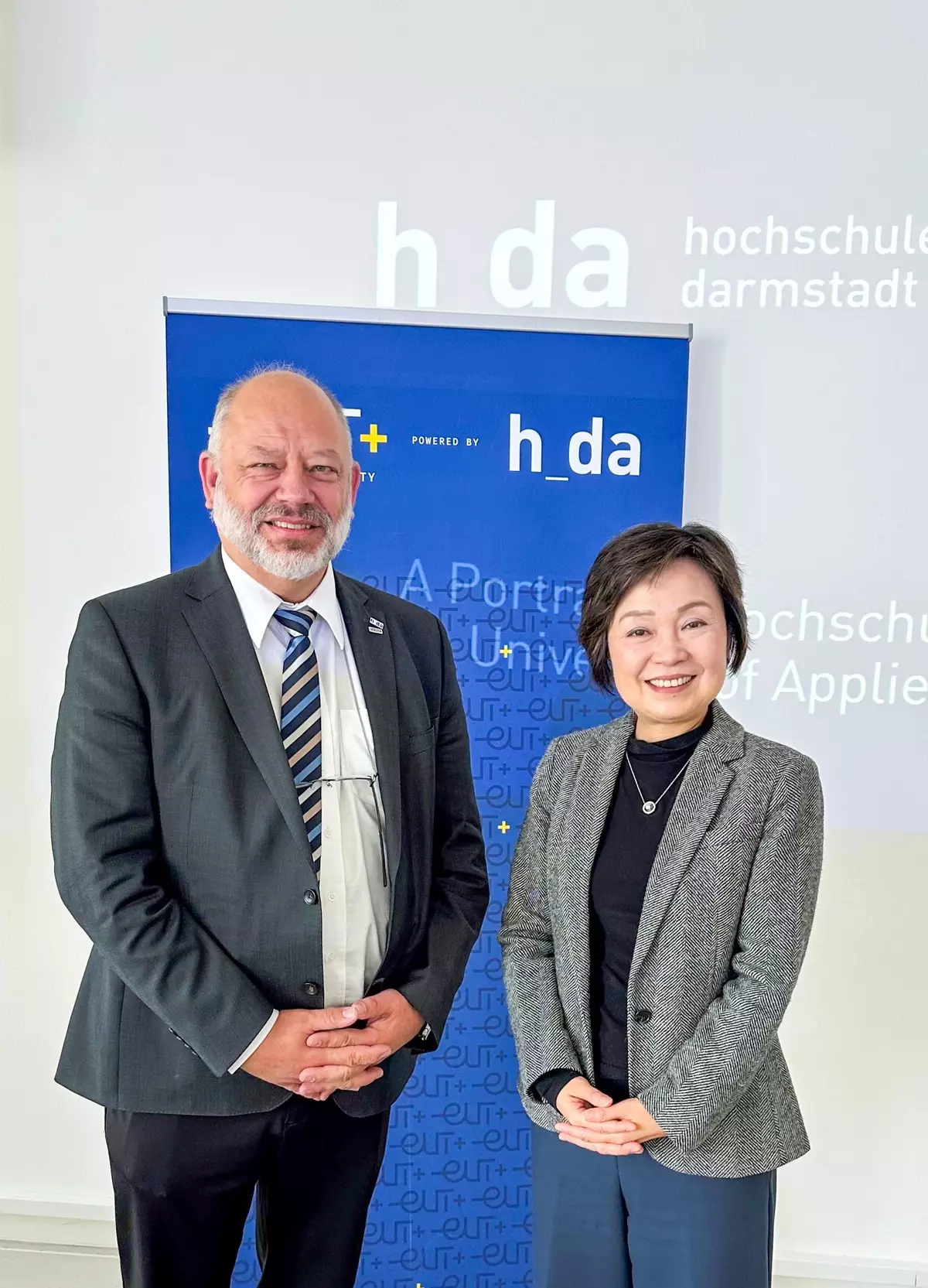
SED visits Germany to learn about local developments in vocational and professional education and training Source: HKSAR Government Press Releases
Employers, contractors and employees should be aware of electrical safety at work during rainstorm
As the rainstorm warning has been issued by the Hong Kong Observatory, the Labour Department (LD) reminds employers and contractors that they should adopt necessary work arrangements and take suitable safety measures to protect the safety of their employees when they are carrying out electrical work or handling electrical plant.
A spokesman for the LD said today (July 27) that employers and contractors should avoid assigning employees to carry out electrical work (like electric arc welding work) or handle electrical plant at places affected by rainstorms, and should refer to the "Code of Practice in Times of Adverse Weather and 'Extreme Conditions'" and the "Guide on Safety at Work in times of Inclement Weather" issued by the LD.
Even if electrical work is carried out or electrical plant is handled at places not affected by the rainstorm, suitable safety measures must still be adopted to prevent electric shock as the air would be more humid. Such measures include:
(i) Ensure that all live parts of an electrical installation are isolated from the power supply source and rendered dead, and the isolation from the power supply source must be maintained as long as electrical work is being carried out;
(ii) Before carrying out any electrical work or handling any electrical plant, cut off and lock out the power supply source, then test the circuit concerned to confirm it is dead and display suitable warning notices, and issue a work permit thereafter;
(iii) Ensure that protective devices (such as suitable and adequate fuses and circuit breakers) for the electrical installations or electrical plant have been installed and maintained in good working order, and portable electric tools must be double-insulated or properly earthed;
(iv) Provide suitable personal protective equipment such as insulating gloves and insulating mats for employees; and
(v) If live electrical work is unavoidable, a comprehensive risk assessment should be conducted by a competent person and the appropriate safety precautions should be taken to remove or properly control the electrical hazards involved before such work can proceed.
In addition, employees should co-operate with the employer or contractor to follow the safety instructions and use the safety equipment provided.
The LD has published guidebooks and leaflets on electrical work safety. These safety publications are available free from divisional offices of the department or can be downloaded from its website (www.labour.gov.hk/eng/public/content2_8.htm).
Should there be any questions about occupational safety and health matters, please contact the Occupational Safety Officer of the LD at 2559 2297.

Source: AI-generated images






